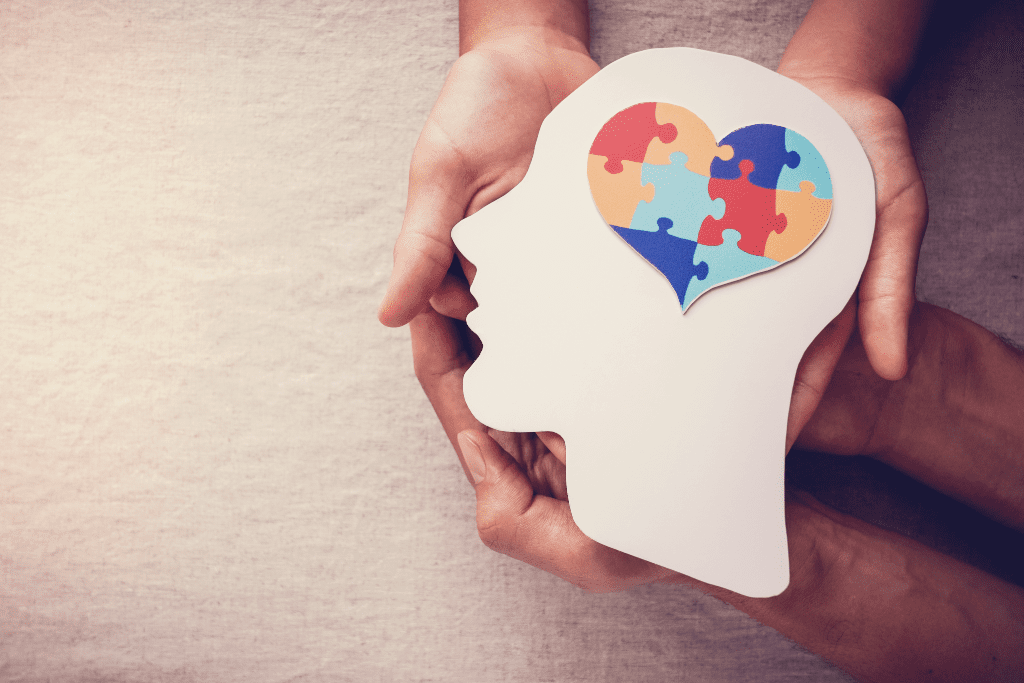
Heart health and gut health are popular topics of interest in today’s health trends. But it’s not very often that we focus on nourishing the hardest working organ in the body, the brain.
The brain is the seat of our intelligence, director of our motor functions, and the place where our ability to reason, learn, make memories, and process emotions happens. It truly is incredible what the 3 pounds of fat inside our heads can do for us! It stands to reason that we all could put a little more effort into loving our brain.
From what you put into your body, to how much you exercise, to your social life, stress levels and mental health, a multitude of factors can play into your brain health. The consequences of not taking care of one’s health can hurt the brain and the body in many ways. For example, when you don’t get enough sleep, you may find yourself more irritable and less able to focus on tasks. On the other end of the spectrum, certain choices may increase your risk for stroke or Alzheimer’s disease.
So, what CAN you do to love your brain? Well, as it turns out, lots! It may not be an obvious priority for many because we can’t visibly see when harm is being done to the brain. People tend to notice their weight gain or changing physique which motivates them to start eating better or exercising, but we don’t see how certain lifestyle choices may be having ill effects on our brain and quality of life.
The first step to better brain health is recognizing that your mind is an integral part of your day-to-day wellbeing and long-term path to healthy aging. You can make a difference in your brain health and ultimately, use your brain to its full potential. Because, when you can think clearer, you can make better choices in every area of your life. Here are 6 ways to start loving your brain.
Number 1: Take Steps to Prevent Head Injury
Concussions, even minor ones, can negatively impact your relationships, learning, memory, and decision-making. No one expects to get a concussion or traumatic brain injury, but there are precautions you can take to reduce your risk for getting one.
First, always wear your seatbelt. Buckle up every time. Secondly, wear a helmet when you ride a bike, motorcycle, or ATV; play a contact sport like ice hockey or football; and when you skate, ski or snowboard. And finally, never drive under the influence of drugs or alcohol.
Number 2: Get Enough Sleep
Our brains do not shutdown while we sleep – it’s quite the opposite. When you sleep, your brain takes care of important housekeeping tasks like removing toxins and cementing memories. Without enough sleep, you’ll find that you have a diminished ability to learn and concentrate the next day. Hit the bed early tonight and aim to get at least 7 to 8 consecutive hours of sleep.
Number 3: Be Mindful of Your Stress Levels
Chronic stress can shrink the memory centers of the brain and is overall detrimental to your mental and emotional health. If you’re feeling overwhelmed, try to focus on the good and find healthy ways to cope with stress like staying connected with friends, exercising, and taking time to do things you enjoy.
Number 4: Feed Your Brain
The brain is no exception when it comes to benefiting from proper nutrition. Healthy fats, such as those found in nuts, seeds, and olive oil are especially good for brain function. Dark leafy greens too have specific brain health benefits. Studies have shown that they can lower the risk of dementia and cognitive decline when eaten in certain amounts. Aim to eat six servings of greens like arugula, spinach, or collards each week to slow brain-aging.
Another tip worth mentioning - eat berries! Any fruit can be a great addition to a balanced diet, but berries may be the best at protecting your brain from cognitive decline.
Number 5: Stay Socially Connected
Staying socially connected goes a surprisingly long way to supporting mental function and fending off depression. Spending time with friends and loved ones boosts your mood and can help alleviate stress. Plus, talking with others provides a healthy mental challenge, as your brain works to interpret verbal and visual cues and form a response.
Make a point to plan regular get-togethers and coffee dates with friends; sign-up for a local class; or attend events in your community to stay connected.
Number 6: Get Your Heart Pumping!
Engaging in regular exercise, especially aerobic exercise, is one of the single best things you can do to bolster your brain health. No matter your age, heart-pumping exercise can decrease your risk for stroke and improve your thinking ability. It even promotes the formation of new neural connections which help you learn and adapt throughout your life.
It's thought that many of these benefits stem from aerobic exercise because it increases blood flow to the brain, reduces inflammation, and lowers levels of stress hormones – all things that benefit cognition.
Aim to get at least 150 minutes of moderate-intensity activity or 75 minutes of vigorous-intensity activity each week. Try taking a brisk walk, biking, or swimming to get in your aerobic exercise.
As you can see, loving your brain goes hand in hand with following a healthy lifestyle. When we treat our bodies right, our mind, mood, thinking, and memory can really benefit too. At the end of the day, we are more than just what we see in the mirror, and your brain function is closely tied with your sense of wellbeing.
